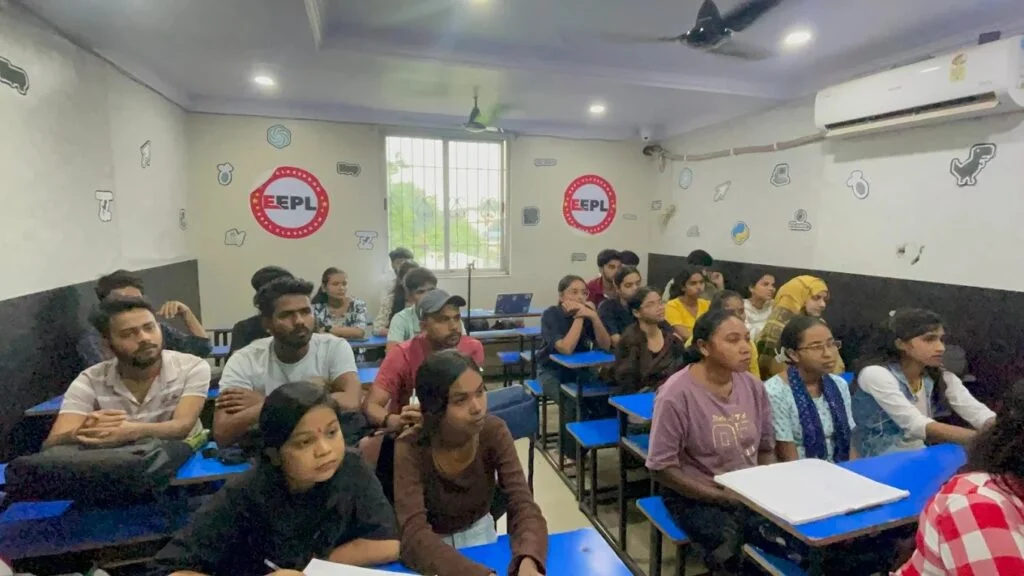Introduction to Class 12 Chemistry Reactions
Chemistry, a central branch of science, plays a pivotal role in the Class 12 curriculum, encompassing a broad range of concepts and applications that are essential for students. At this stage of their education, learners are introduced to an array of chemical reactions, each serving as a foundational building block for understanding more complex theories and real-world applications. Mastery of these key reactions not only enhances students’ academic performance but also equips them with critical analytical skills essential for scientific inquiry.
The importance of comprehending chemical reactions cannot be overstated. These reactions serve as the fundamental processes that govern the interactions between substances, and their study is integral to the overarching themes of chemistry. For instance, reactions such as acid-base, redox, and precipitation are prevalent not only in laboratory settings but also in various industries, including pharmaceuticals, environmental science, and materials engineering. By familiarizing themselves with these reactions, students gain insights into how everyday phenomena occur, empowering them to apply their knowledge effectively beyond the classroom.
This section aims to provide readers with a clear understanding of what lies ahead in this exploration of Class 12 chemistry. It highlights the significance of focusing on the ten most important reactions, illustrating their relevance not merely as academic targets but as essential elements in the continued study of chemistry. Students are encouraged to view these reactions not as isolated facts to memorize but as interconnected principles that form the bedrock of chemical understanding. As we delve deeper into the specifics of each reaction, students will find that a well-rounded grasp of these concepts fosters confidence and lays the groundwork for advanced chemical education, ultimately contributing to their overall success in the subject.
Key Reactions and Their Importance
Understanding key reactions in chemistry is crucial for students at the Class 12 level, as these reactions form the backbone of various chemical principles and concepts. The following reactions are among the most significant, spanning organic, inorganic, and physical chemistry, and serve as vital components of the curriculum.
1. Alcohols to Aldehydes: The oxidation of alcohols to aldehydes is essential in organic chemistry, illustrating the transformation of functional groups. This reaction is relevant in the synthesis of various organic compounds.
2. Nucleophilic Substitution Reactions: Common in organic synthesis, this reaction is essential for students to comprehend how nucleophiles replace leaving groups in organic molecules, paving the way for complex molecule production.
3. Synthesis of Esters: The formation of esters through the reaction of acids and alcohols is fundamental, especially in the field of organic chemistry concerning flavor and fragrance industries.
4. Le Chatelier’s Principle: This principle explains how equilibrium shifts in response to changes, making it important in understanding dynamic equilibrium in physical chemistry.
More
5. Preparation of Salts: The reaction of acids and bases to form salts is a foundational concept in inorganic chemistry, important for understanding acid-base reactions.
6. Electrolysis of Water: This reaction illustrates the principles of electrochemistry and the separation of compounds, relevant for energy discussions in contemporary science.
7. Redox Reactions: Redox reactions are crucial in both organic and inorganic chemistry, defining electron transfer processes which are essential in numerous applications, including batteries.
8. Hydrolysis of Salts: Understanding how salts react with water highlights aspects of physical chemistry and properties of acid-base behavior.
9. Grignard Reagents: The formation of Grignard reagents is vital in organic synthesis for creating highly reactive organomagnesium compounds.
10. Combustion Reactions: The combustion of hydrocarbons emphasizes key concepts in energy production, crucial in both organic chemistry and broader environmental discussions.
Each of these reactions embodies fundamental concepts in chemistry, enabling students to grasp their importance not only for examinations but also for practical applications in real-world scenarios.

Detailed Breakdown of Each Reaction
To foster a comprehensive understanding of the top ten reactions commonly encountered in Class 12 Chemistry, we shall explore each reaction in detail. We will focus on the mechanisms involved, the conditions required for the reactions to proceed, and the resulting products.
The first reaction is that of acid-base neutralization, where an acid reacts with a base to form water and a salt. This reaction generally requires the presence of a strong or weak acid and a strong or weak base, leading to the formation of various salts depending on the specific reactants used. The reaction showcases the transfer of protons (H+) to highlight the fundamental nature of acids and bases.
Next, we discuss combustion reactions, which occur when hydrocarbons react with oxygen to produce carbon dioxide and water. This reaction requires a sufficient supply of oxygen and generates significant energy, making it essential for various applications, including combustion engines.
The third reaction involves photosynthesis, an endothermic process in which carbon dioxide and water, in the presence of sunlight and chlorophyll, are transformed into glucose and oxygen. Understanding this reaction is crucial as it emphasizes the interplay between light energy and chemical energy in living systems.
Other
Electrolysis of water is another significant reaction. In this process, water is split into hydrogen and oxygen gas upon the application of electric current. This reaction not only requires specific electrolysis conditions but is also vital for hydrogen production and energy storage technologies.
Moving onto substitution reactions, we see how alkanes or aromatics react with electrophiles, resulting in the replacement of one functional group with another. These reactions are characterized by varying conditions and can lead to diverse structural outcomes, thereby influencing the properties of the resultant compounds.
Each reaction discussed plays a pivotal role in the broader scope of chemistry. By gaining insights into the mechanisms and conditions, students can relate these fundamental concepts to real-world scenarios, enhancing their retention and understanding of chemistry substantially.
Tips for Mastering Reactions in Class 12 Chemistry
Mastering the various reactions in Class 12 Chemistry requires a strategic approach that combines understanding, practice, and effective study techniques. One of the most effective methods is to create mnemonic devices to aid in memorizing complex reaction mechanisms and formulas. Mnemonics can transform challenging material into memorable phrases or acronyms, making it easier for students to recall important concepts during examinations.
Additionally, utilizing visual aids can significantly enhance comprehension. Diagrams, flowcharts, and concept maps can help illustrate the relationships between different reactions. By visualizing the information, students can create mental maps that facilitate easier retrieval of facts and processes when needed.
Regular practice with problem sets is essential for mastering chemical reactions. Engaging in exercises that cover a variety of reaction types will reinforce learning and boost confidence. Consider incorporating past examination questions into your study routine to gain insight into common problem-solving techniques and question formats. Working through practice problems allows students to apply theoretical knowledge in practical scenarios, further solidifying their understanding.
Furthermore, utilizing a range of resources is crucial in preparing for the exam. Classic textbooks often provide a thorough explanation of fundamental concepts, while online courses can offer interactive learning experiences that cater to various learning styles. Online platforms may feature tutorials, quizzes, and discussion forums that encourage collaborative learning. Joining study groups can also facilitate knowledge sharing and provide additional support from peers, enhancing motivation and understanding.
Conclusion
By implementing these strategies—creating mnemonics, using visual aids, actively practicing, and leveraging diverse resources—students can effectively master the reactions in Class 12 Chemistry. This comprehensive approach will not only prepare them well for their exams but also foster deeper comprehension of the subject matter, empowering them to excel academically.
Read Our Latest Blog
How to Choose the Right Career Path After 12th Grade
Phone Number: +91-7488456170
Email ID: abhishek@eepl.me
Our Platforms:
Digilearn Cloud
EEPL Test
Live Emancipation
Follow Us on Social Media:
Instagram – EEPL Classroom
Facebook – EEPL Classroom
Stay connected and keep learning with EEPL Classroom !











